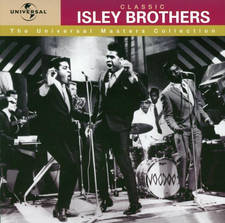Why The Seekers split up and became The New Seekers explained
31 August 2022, 12:31

The Seekers were one of the biggest bands of the 1960s.
Formed in Melbourne, the folk-pop quartet were the first Australian group to achieve major chart success in the UK and US.
With Judith Durham's sublime vocals, and backed by Athol Guy, Keith Potger and Bruce Woodley, the band were hugely popular around the world.

They had top 10 hits with the likes of 'I'll Never Find Another You', 'A World of Our Own', 'Morningtown Ride', 'Someday, One Day' and 'Georgy Girl'. Their song 'The Carnival Is Over' was particularly massive, becoming a million-seller in 1965.
But they didn't last the 1960s, and by the end of the decade they had disbanded and become The New Seekers. But what happened?

The Seekers The Carnival Is Over (1967 In Colour Stereo)
Judith Durham's departure
By 1968, The Seekers were superstars. In their homeland, they were huge, and were even named Australians of the Year.
On February 14, during their New Zealand tour, Judith Durham approached her bandmates to announce that she was leaving the Seekers to pursue a solo career, and the group soon disbanded.
Their final performance came on July 9, screened by the BBC as a special called Farewell the Seekers, with an audience of over 10 million viewers.
A live recording of one of their final shows was released as a live album, Live at the Talk of the Town, reaching No. 2 on the UK charts.
Solo careers
Following the Seekers' split, Judith Durham started her solo career.

She released a Christmas album called For Christmas with Love, and then signed with A&M Records, releasing several albums.
Athol Guy hosted his own TV show in Australia, called A Guy Called Athol, before entering politics in 1973.
The New Seekers begin and split
Keith Potger put together the New Seekers in 1969. The lineup featured Laurie Heath, Chris Barrington, Marty Kristian, Eve Graham and Sally Graham (no relation), alongside Potger.
ITV gave the band their own TV show Finders, Seekers, with the lineup consisting of Keith Potger, Eve Graham, Sally Graham, Laurie Heath, Marty Kristian and Chris Barrington.

After the series failed to attract an audience, the lineup was reworked again to comprise Eve Graham, Kristian, Lyn Paul, Peter Doyle and Paul Layton. They found instant success with their cover of 'What Have They Done to My Song, Ma'.
In 1971, they scored another UK hit with 'Never Ending Song of Love' and at the end of the year, they recorded an adaptation of the Coca-Cola jingle, 'I'd Like to Buy the World a Coke', as 'I'd Like to Teach the World to Sing'.
The song was a worldwide success, reaching number 1 in the UK and the top 10 in the States.

The New Seekers - I'd Like To Teach The World To Sing 1972 with Lyrics
They also represented the United Kingdom at the 1972 Eurovision Song Contest, with the song 'Beg, Steal or Borrow'. They finished in second place at the Eurovision final in Edinburgh.
After a number 1 hit with 'You Won't Find Another Fool Like Me', the group announced their split. There had been allegations that the members were receiving little financial reward for their success, and The New Seekers officially parted ways in May 1974.
Seekers reunions without Durham
From 1972, Guy, Potger and Woodley planned on reforming the Seekers without Durham.
By 1975, they had brought in Louisa Wisseling, a semi-professional folk singer, and they had had a top 10 Australian hit with 'The Sparrow Song'.
Woodley left the group in June 1977 and was replaced by Buddy England, a former member of the Mixtures. In 1978, Guy was replaced by Peter Robinson, and Cheryl Webb replaced Wisseling as lead singer, leaving just Potger from the original Seekers line-up. In 1980, the group released an album, A Little Bit of Country, and toured here and there until the mid-1980s.
In 1988, Guy, Potger and Woodley reformed the Seekers with singer Julie Anthony. a cabaret singer. In 1990, Anthony left the group and was replaced by Karen Knowles, but they soon split again.
A full reunion
The Seekers finally reunited late in 1992, with the classic line-up of Durham, Guy, Potger and Woodley.
All four had met up for the first time in 20 years at a restaurant in Toorak, in Melbourne. Two months after reconnecting, they decided to do a reunion concert, leading to an epic 102-date tour.
The 25-Year Silver Jubilee Reunion Celebration tour in 1993 meant that the group continued to perform and record together, on and off, from then on.

Durham had suffered a broken hip, but sang 'The Carnival Is Over' in a wheelchair at the closing ceremony of the Sydney Paralympic Games in 2000.
Their Golden Jubilee Tour occurred in 2013, celebrating 50 years since the group had formed in 1962. Sadly, Durham suffered a brain haemorrhage after their first concert in Melbourne. The rest of the Australian tour and UK tour were postponed, but eventually took place including two performances at the Royal Albert Hall in London.
In 2019, they released a new album titled Back to Our Roots, featuring Guy, Potger and Woodley alongside new singer Michael Cristiano, but as 'The Original Seekers'.
Judith Durham's death
Tragically, Judith Durham died from bronchiectasis, a chronic lung disease, in Melbourne, aged 79, in 2022.
It was announced that Durham would be given a state memorial service at Hamer Hall later in the year.












